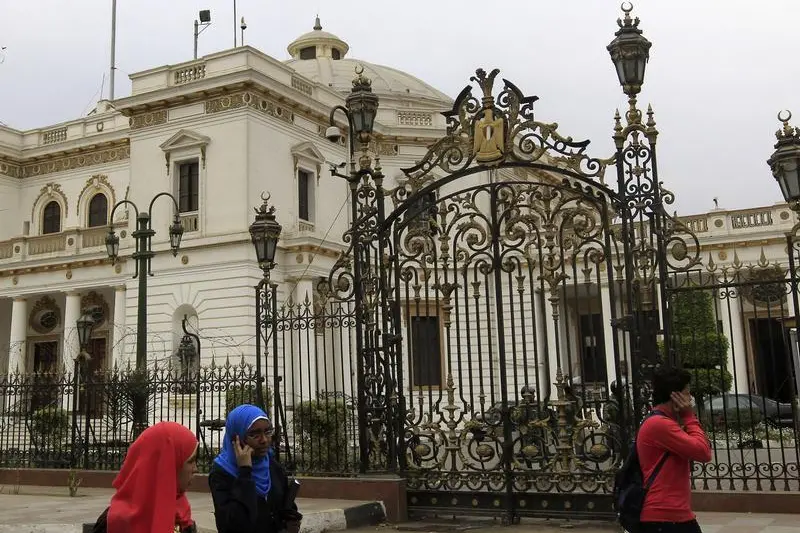PHOTO
Safeya Mounir reports on the pros and cons of Egypt's new labour law
By Safeya Mounir
The Labour Committee of parliament is currently studying a draft labour law regulating relations between workers and employers.
Minister of Manpower Mohamed Saafan described the draft as meeting the needs of both workers and employers, though union members have criticised it for including some of the flaws of the old law while offering advantages such as doing away with the “Form 6” document often needed when an employee leaves a job.
Magdi Al-Badawi, deputy chair of the General Federation of Egyptian Trade Unions, said the draft law had several advantages, including eliminating the flaws of Form 6 which some employers force employees to sign at the time of hiring. They may then keep the form until they want to dismiss the worker, giving them no obligation to pay severance pay.
Al-Badawi said the draft law included a clause that states that Form 6 will not be recognised unless the employee signs it at the labour office of his district on the day of termination. The new legislation also creates labour tribunals, and says that in cases of dispute and to prevent arbitrary dismissal terminations should be based on court orders and not decided by the employer.
The legislation also stipulates that court procedures should not last longer than six months.
“One of the advantages of this law is closing the loophole of having to sign a resignation letter the moment you are hired, known as Form 6,” said Sherif Al-Masri, a member of the Committee for the Defence of Union Freedoms.
However, Al-Badawi said that one of the draft law’s flaws was that it extends temporary contracts, considered as training periods for workers, from a maximum of six months under the current law to two years. Al-Badawi said this could allow business owners to keep employees for this period and then dismiss them on the pretext that their training was over. He could then hire others in order to avoid hiring new full-time workers.
The right to strike is another controversial article of the draft law since it limits this in “strategic facilities”, making it a prerogative of the prime minister and without stating which facilities it applies to, Al-Badawi said. It adds that organising a strike must be done through a relevant labour organisation or labour commissioner within the limitations and regulations of the law.
In earlier statements, Saafan said the draft law stipulated the need to inform employers and the relevant administrative agency at least ten days before a strike through a registered letter signed upon delivery. The notification must include the reasons for the strike and the dates when it begins and ends, and strikes or calling for strikes at strategic or vital facilities are banned since these would constitute a violation of national security or of basic services to citizens.
The draft law states that the prime minister will issue a directive specifying these facilities. The legislation also bans strikes or calling for strikes under extraordinary circumstances.
Bonuses are also a controversial issue in the draft legislation, since it allows the Supreme Council on Pay to lay down regulations for these, something which Al-Badawi believes could open the door to employers fabricating reasons for not paying for raises and “opening a door to hell for workers”.
The legislation stipulates that workers should be paid an annual bonus of no less than seven per cent of their basic wage, this coming into effect after one year of employment or one year after the previous bonus was paid, according to regulations issued by the Council on Pay.
Al-Masri said the core of the draft law was similar to the current one, Law 12 of 2003, and criticised the way in which the new law entrenches employment insecurity and extends temporary contracts for up to six years on an annual basis, should the employer wish to do so.
This period is far too long, Al-Masri said, complaining that the new law also gives employers the right to terminate employment without obligating them to take back employees if terminations are shown to be unfair.
Al-Masri criticised giving the Workers Union the power to review cases of dispute between employees and employers, because this ignored independent unions. The law also does not obligate the directors of a business to include a union representative on the company board.
© Al Ahram Weekly 2017





















